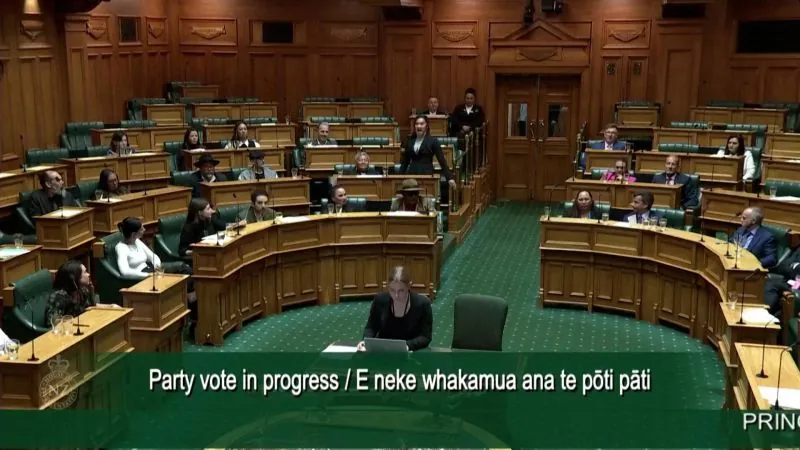
Haka Protest Disrupts New Zealand Parliament Over Controversial Indigenous Treaty Bill
2024-11-14
Author: Wei
Dramatic Showdown at New Zealand's Parliament
In a dramatic showdown at New Zealand's Parliament, a significant protest erupted on Thursday as Māori Members of Parliament (MPs) performed a haka— a traditional Māori war dance— to voice their opposition to a contentious bill aimed at redefining the Treaty of Waitangi, which has been at the heart of Indigenous rights and governance since its signing in 1840.
The Treaty of Waitangi: A Historical Context
The Treaty of Waitangi, originally signed between the British Crown and over 500 Māori chiefs, outlines the partnership and governance agreement between the two parties. The interpretation of this treaty remains pivotal, influencing numerous laws and policies across New Zealand.
Controversy Over Indigenous Rights
In recent decades, Māori rights have been bolstered by court rulings and a dedicated Māori tribunal, yet there is ongoing debate about whether these expansions of rights come at the expense of non-Indigenous citizens. This tension has led to calls for a more constrained reading of the treaty, notably fueled by the ACT New Zealand party—part of the ruling center-right coalition government. Last week, they introduced legislation that seeks to solidify a narrower interpretation of the treaty in law, igniting fierce backlash among Māori representatives and their advocates.
Haka Performance: A Gesture of Defiance
On the day of the preliminary vote for the bill, Te Pati Māori MPs unexpectedly rose from their seats to perform the haka, transforming the parliamentary chamber into a scene of cultural defiance. Their display of unity and opposition was so powerful that it caused a temporary suspension of parliamentary proceedings, with onlookers from the gallery joining in the chant, creating an atmosphere of palpable tension.
Political Reactions
ACT New Zealand leader David Seymour criticized the protest, asserting that those opposed to the bill are 'stirring up' fear and division and claiming his intention is to empower all citizens of New Zealand. However, for many Māori representatives and their supporters, the proposed changes are perceived as a direct threat to their Indigenous rights, jeopardizing the progress made over the years.
Community Mobilization
This controversy has not only invoked parliamentary protests but has also mobilized the wider community. In response to the proposed bill, hundreds have embarked on a nine-day hikoi (march) from the northern regions of New Zealand to the capital, Wellington, rallying against what they deem a betrayal of Māori rights. They are scheduled to arrive next Tuesday, where tens of thousands are expected for a large rally to amplify their voices.
The Bill's Future
Though the bill has successfully navigated its first reading, its future remains precarious. Coalition partners, including the National Party and New Zealand First, are only backing the legislation for the initial reading as part of their coalition deal, with both parties signaling that they will not support its progression into law. Given this lack of backing, the bill appears destined to fail, leaving many to wonder what this means for the future of Indigenous rights and relations in New Zealand.
Ongoing Struggle for Recognition
As the political landscape continues to evolve, the voices of Māori leaders grow louder, underscoring an enduring struggle for recognition, respect, and rights in their ancestral homeland.



 Brasil (PT)
Brasil (PT)
 Canada (EN)
Canada (EN)
 Chile (ES)
Chile (ES)
 España (ES)
España (ES)
 France (FR)
France (FR)
 Hong Kong (EN)
Hong Kong (EN)
 Italia (IT)
Italia (IT)
 日本 (JA)
日本 (JA)
 Magyarország (HU)
Magyarország (HU)
 Norge (NO)
Norge (NO)
 Polska (PL)
Polska (PL)
 Schweiz (DE)
Schweiz (DE)
 Singapore (EN)
Singapore (EN)
 Sverige (SV)
Sverige (SV)
 Suomi (FI)
Suomi (FI)
 Türkiye (TR)
Türkiye (TR)